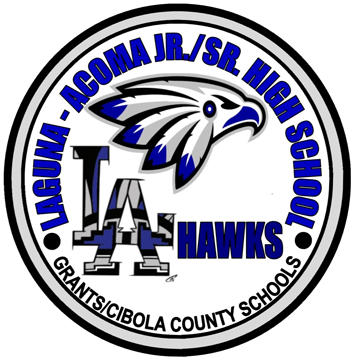SCIENCE
GRADUATION REQUIRMENTS
3 credits of science
2 credits must include a lab component
PHYSICAL SCIENCE
Grade 9
Course involves the study of the structures and states of matter. Typically (but not always) an introductory survey course, topics covered may include forms of energy, wave phenomenon, electromagnetism, and physical and chemical interactions.
BIOLOGY
Grade 10
This phenomena based course addresses ideas and skills from earlier grades where students explain more phenomena central to the life sciences with connections to the earth and space sciences. This course focuses on applicable grade-level multidimensionality in the NM STEM Ready! Science Standards addressing the topics of: from molecules to organisms: structure and processes; matter and energy in organisms and ecosystems; interdependence in ecosystems; inheritance and variation of traits; natural selection and evolution; Earth's systems; Earth and human activity; and engineering design.
AP BIOLOGY
Grade 10
Typically taken after a year of high school biology and chemistry and designed to parallel college level introductory biology courses, AP Biology courses stress basic facts and their synthesis into major biological concepts and themes. Three general areas are covered: molecules and cells (including biological chemistry and energy transformation); genetics and evolution; and organisms and populations (i.e., taxonomy, plants, animals, and ecology). AP Biology courses include college level laboratory experiments. This course is intended to prepare students for the Advanced Placement Exam for college credit in this subject and should follow the published College Board guidelines. Class is for 2 periods. Students are required to take the AP Exam.
CHEMISTRY
Grade 11
Intended for college-bound STEM students. Course involves the composition, properties, and reactions of substances. The behaviors of solids, liquids, and gasses; acid/base and oxidation/reduction reactions; and atomic structure are typical concepts explored in Chemistry-First Year courses. Chemical formulas and equations and nuclear reactions are also studied.
ANATOMY AND PHYSIOLOGY
Grade 12
An advanced second year Biology course designed for students planning a career in Life Science, Health or Medical Fields. Students will investigate topics in greater detail and become familiar with newer techniques in Biology used to study human genetics and cells at molecular level along with review of basic biological concepts related to health sciences. Course will cover Fundamentals of Anatomy and Human Physiology in order to prepare to meet requirements for CNA Programs. Students will develop reading, writing and presentation skills to increase their awareness of current research through assigned health and medical science readings on specific issues impacting human health and medical care.
